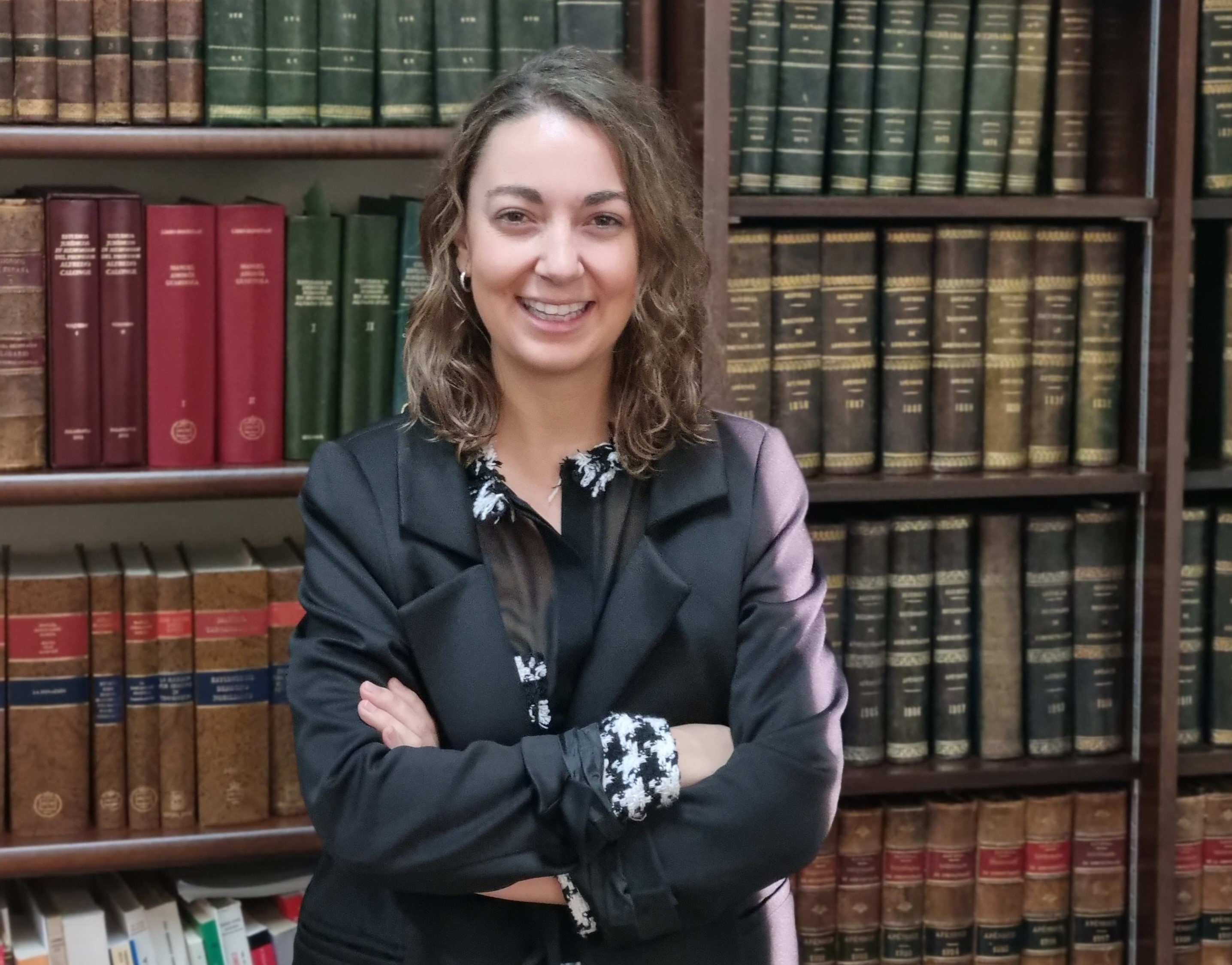"Knowing that the work of all these years has been recognized by experts at Civil Law gives me security, confidence and even more desire to continue working along this same path."
Clara Gago Simarro, lecturer at the University of Oviedo, wins the XXI edition of the award Sancho Rebullida with her research on donations in hereditary succession.

30 | 01 | 2022
The research and analysis of donations in hereditary succession has earned Clara Gago Simarro, professor teaching assistant Doctor of the University of Oviedo, the award Francisco de Asís Sancho Rebullida (2020 edition). The School of Law submission this award since 1998 and is one of the most outstanding legal awards to the research . It is named after Francisco de Asís Sancho Rebullida, in report of one of the most prestigious national civil lawyers, who was Full Professor of Civil Law at the University of Navarra .
Clara Gago defended her thesis Donations in inheritance (computation, imputation and collation) and collation in November 2019. The research was directed by Professor Camino Sanciñena Asurmendi, Professor of Civil Law at the University of Oviedo. " Donations have an important legal relevance in the hereditary succession of the donor: on the one hand, in the field of the legitimate rights, in order to verify that such donations do not harm the quantum of legitimate rights of the donor's legitimated heirs; and on the other hand, in the partition, where certain donations must be added to calculate the hereditary quantum of the donor's forced heirs", she summarises in her research. Gago sample is grateful to the University for the award of this award which, above all, he says, gives him the security and confidence to continue promoting his work and research in this field.
- What would you highlight from your research?
The importance of the reserved portion as a limit to a person's freedom of disposition, which not only affects the contents of his will, but also the gratuitous acts carried out during his lifetime. And this is very important because not only do the legitimate rights restrict the freedom of a person in his will by preventing him from quantitatively damaging the inheritance portion of his legitimated beneficiaries, but they also limit his freedom of disposal by gratuitous acts with inter vivos effectiveness (e.g. donations): this implies that, in principle, donations regardless of the date on which they were made must be taken into account after the death of the donor in his succession, even requiring the donee to contribute the assets received by donation to the estate.
- What does it mean for you to receive the award Sancho Rebullida?
Receiving the award Sancho Rebullida is the highest recognition that a young researcher can receive at national level in the field of Civil Law, so for me it is a real honour to receive this award which, moreover, commemorates one of the great civilians of the twentieth century, Professor Francisco de Asís Sancho Rebullida. The day I was informed of the award of the award and, after the many calls and celebrations, the word security came to my mind. Knowing that the work of all these years has been recognised by experts at Civil Law gives me security, confidence and even more desire to continue working along the same path.
- How did this thesis come about? Why this area of research?
During the last year of the Degree in Law I joined the area of Civil Law of the University of Oviedo after obtaining a scholarship of partnership granted by the Ministry of Education. From that moment on, encouraged by Professor Sanciñena Asurmendi, I began to do research in the field of inheritance law and, after enrolling in doctorate , I focused my research research on the inheritance operations of calculating legitimate and collation, as it was a subject that required an in-depth research that analysed jointly the inheritance institutions involved in those inheritances in which the deceased in life had carried out acts at degree scroll free of charge for the calculation of the legitimate and the calculation of the inheritance quotas.
- What obstacles, difficulties have you encountered along the way? If there have been any...
The truth is that I have been very lucky to be able to work in something I really like, combining research with teaching and I have very good memories of the years at doctorate, but thinking about any difficulties I have experienced during these years, I think the first and most important one is the immense difficulty we researchers have in disconnecting. I don't think you ever get to rest one hundred percent: thesis is always on your mind, even when you are having a drink with your friends, partying, at the cinema, on the beach, etc.... It has been four years in which I have lived 24 hours a day, seven days a week with the thesis doctoral thesis.




